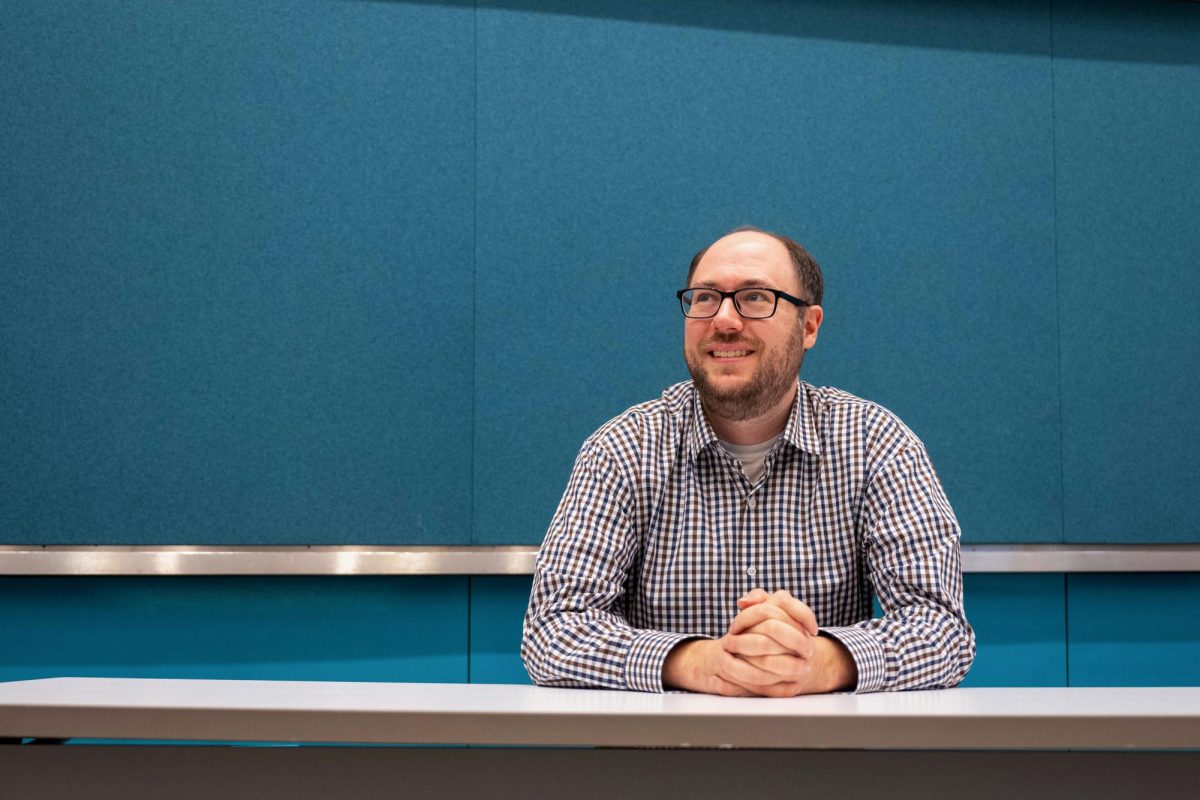In more than a decade of work in local government, Peter Sacco views his role in overseeing Advisory Neighborhood Commission meetings as ensuring the right people are in the right place at the right time.
“I approach every meeting as like, ‘This is my Super Bowl,’” Sacco said. “It’s just, a lot of work goes into those meetings, and there’s a big sense of accomplishment that comes out of successfully doing a meeting and finishing it.”
Sacco formally departed his role on Friday as the executive director of four local ANCs, including the Foggy Bottom ANC, but said he will continue to serve on a volunteer basis for all four commissions until they find a replacement. A GW alum, Sacco served as a commissioner for ANC 2A during his time at the University from 2012 to 2015 and has served as the executive director for the ANCs in Foggy Bottom, Dupont Circle, Georgetown and Kalorama Heights since 2016.
In the role, Sacco compiled agendas, communicated with neighborhood businesses for upcoming licensing applications and advised commissioners on ANC rules and procedures. Sacco will begin a new position as deputy director for finance and operations for Serve DC, the Mayor’s Office on Volunteerism and Partnerships, on Monday.
His foray into local government began during his first year at GW in 2011 when he saw an article advertising opportunities to run for city board positions. Sacco applied for the Commission for National and Community Service, and then-Mayor Vincent Gray appointed him to the position.
“I was very civically minded at the time in terms of, I loved community service,” Sacco said. “I loved serving with a bunch of nonprofits in the city.”
In his sophomore year, Sacco and two of his friends applied to run for seats on Foggy Bottom’s ANC. Sacco ran as a write-in candidate in a district almost entirely composed of students, encompassing Strong, South and Lafayette halls, then was reelected in 2014.
“I thought about it and decided, ‘I think I should do this,’” Sacco said.
Sacco said one of his greatest accomplishments as a commissioner was work to reopen Thaddeus Stevens School on 21st and K streets. In 2009, former Mayor Adrian Fenty attempted to convert the school — which former President Jimmy Carter’s daughter Amy attended from 1977-1979, the last time a sitting president’s child attended public school — into an apartment complex. After years of planning, the public school reopened in 2020 and now serves children from across the District through age 5.
“It was a great school, and it was a shame that the city had closed it,” Sacco said. “But the ANC advocated very strongly for a long period of time to reopen it as an elementary school, and we were very happy that DCPS did. So that was a big accomplishment for us.”
Jeri Epstein, a former chair of the ANC, said Sacco was smart and eager to learn, managing the personalities across all the ANCs he oversaw.
“He pays attention to the intricacies of city government and the infrastructure,” Epstein said in a text. “I think the mayor will be very happy to have him on staff.”
As commissioner, Sacco spoke with students and community members about a proposal to delegate GW Police Department officers to patrol the neighborhood in uniform and respond to off-campus complaints. The commission held a special listening session to gather community perspectives, but the proposal did not move forward.
“It was a proposal that received fairly mixed emotions in the neighborhood, both from students and neighbors,” Sacco said.
In his second term, Sacco served as the Foggy Bottom ANC’s secretary. After he graduated from GW in 2015, he moved off campus, rendering him ineligible to run for reelection in the same single-member district. Sacco resigned from his post but agreed to stay on in a staffing role to continue the administrative work he had done as secretary.
Over roughly the next year, the ANCs in Dupont Circle, Georgetown and Kalorama Heights expressed a need for an executive director, and Sacco assumed the position for all four bodies. Sacco held jobs at St. Mary’s Court, a neighborhood retirement home, and the Foggy Bottom Village, which assists local senior citizens, before departing in June 2020 to work solely as the executive director for the ANCs.
Sacco said his greatest challenge as executive director was the shift to hybrid meeting formats during the pandemic, directing citizens to phone-in and Zoom meeting attendance. In March 2020, the Foggy Bottom ANC was the first ANC to conduct its proceedings over Zoom, he said.
“We were, to my knowledge, the only commission that didn’t cancel our March 2020 meeting,” Sacco said.
He oversaw a total of 28 commissioners across the four ANCs as executive director, about 56,000 constituents.
“It really helps to have a good relationship with all of them,” Sacco said. “Commissioners have different priorities, they have different personalities, they may be looking for support in different ways, and it helps to have that relationship to be able to support them, however they need.”
Despite his work with commissions across Ward 2, the Foggy Bottom ANC was Sacco’s “home ANC,” he said.
“This is gonna be the hardest ANC to leave for me,” Sacco said at his last Foggy Bottom ANC meeting as executive director Wednesday. “It’s gonna be really tough. It’s been 11 years now.”
Commissioner Trupti Patel said Sacco was one of the first people who helped her onboard to the ANC when she joined in 2019.
“You are the institution, you are the heartbeat,” Patel told Sacco at the ANC’s Wednesday meeting.
GW alum and commissioner Yannik Omictin said Sacco laid the groundwork for student representation on the ANC.
“The legacy that you leave here is incredible for GW students who deserve representation on the ANC,” Omictin said. “You are like an encyclopedia of ANC knowledge.”





